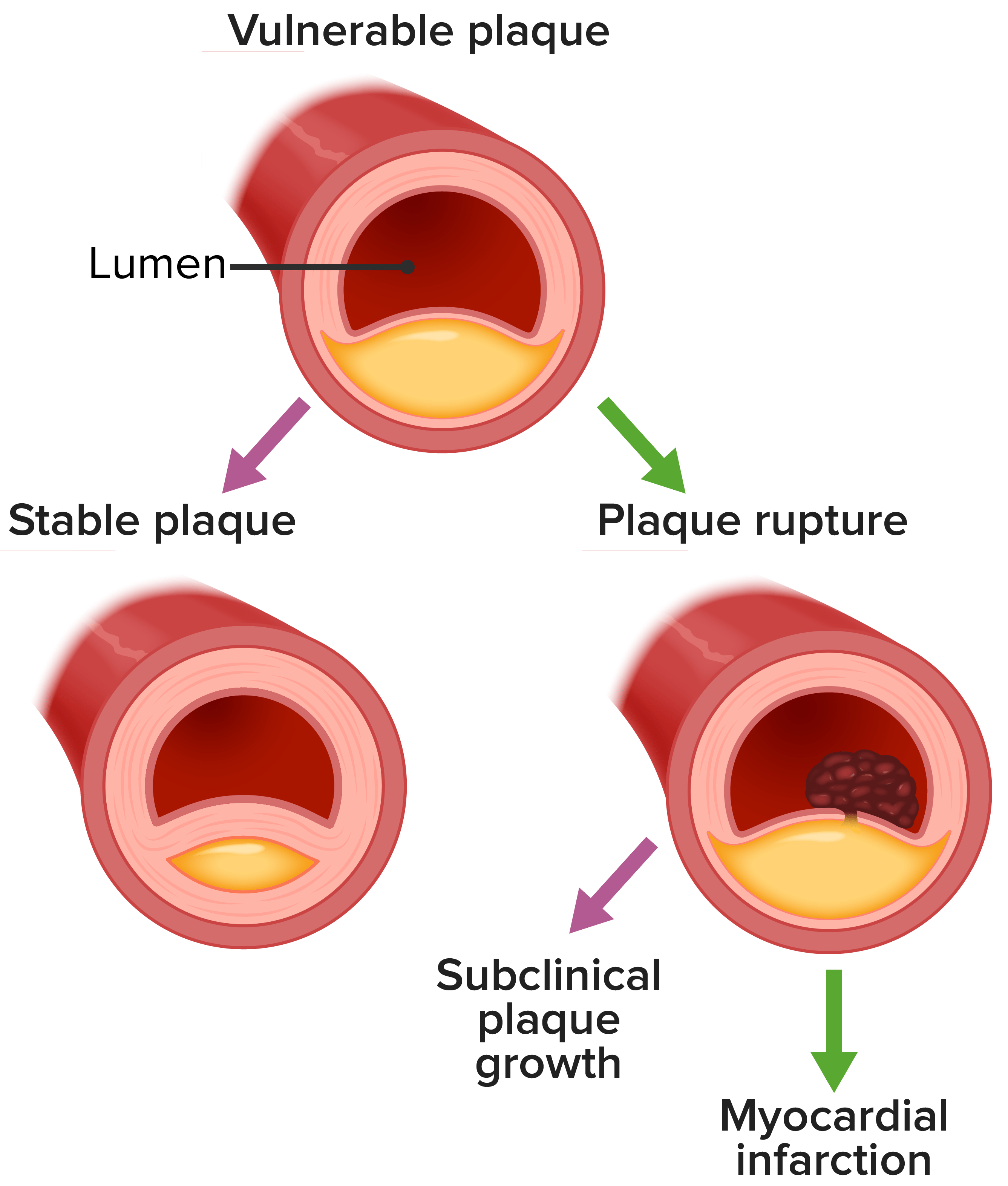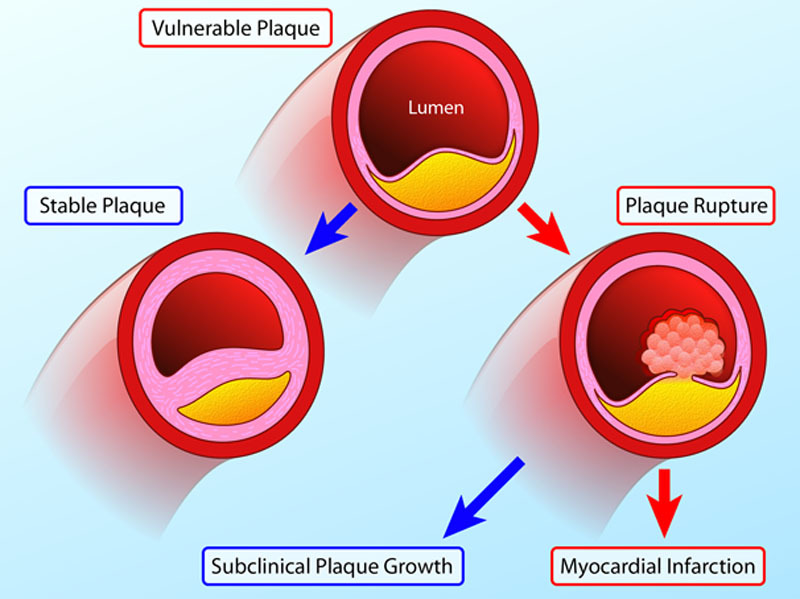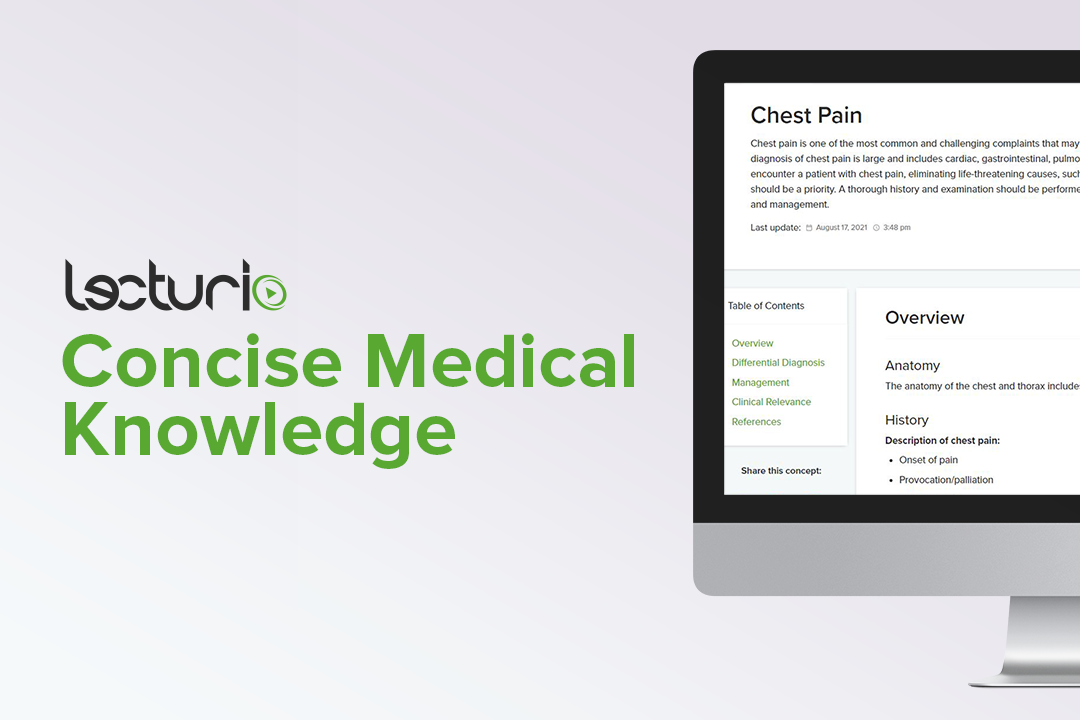Playlist
Show Playlist
Hide Playlist
Chest Pain: Additional Tests
-
Emergency Medicine Chest Pain.pdf
-
Download Lecture Overview
00:01 Bottom-line is you've got to get an EKG and a Chest X-ray in every single patient, because it's gonna help you narrow your differential diagnosis, and it's gonna give you clues about life threatening causes of chest pain. 00:13 Now, there are of course other tests that you're gonna perform on patients with chest pain. 00:17 So generally, if you have any suspicion whatsoever for coronary syndrome, you should be thinking about serial troponins. 00:23 D-dimer can be used to rule out PE, but only in low risk patients. 00:28 It's not useful for patients who have moderate or high probability for PE. 00:32 You would need to go on to imaging to establish that diagnosis. 00:36 And specifically chest CTA is the imaging modality that you would wanna use, if you had a higher suspicion for PE, or if you were concerned about dissection. 00:44 And then, echocardiogram can be performed right at the bedside. 00:48 And it's very useful for evaluating patients with suspected pericarditis. 00:52 It can tell you whether a pericardial effusion is present and whether there are signs of tamponade or impending tamponade. 00:58 Now, there are some empiric treatments that you can provide for your patients with chest pain. 01:03 MONA, is the classic mnemonic for patients who have suspected coronary syndromes. 01:09 And this stands for Morphine, Oxygen, Nitroglycerin, and Aspirin. 01:14 Now, Morphine has become a little bit more controversial in a recent years with chest pain. 01:19 There are some studies that actually show worst outcomes in patients who receive Morphine. 01:24 But for patients who have refractory persistent severe chest pain, it's probably reasonable to use Morphine judiciously in order to alleviate their symptoms. 01:34 Oxygen is a relatively benign intervention and can definitely help alleviate some of the symptoms associated with cardiac ischemia. 01:41 Nitroglycerin, is a coronary vasodilator which can alleviate ischemic chest pain, but you've got to be careful, you can't give it to anybody whose hypotensive. 01:51 And then, Aspirin of course is an antiplatelet agent which is very useful in coronary syndrome for maintaining perfusion of the myocardium. 02:01 Now, with antiplatelet agents like Aspirin, you do wanna be careful because if you suspect dissection or any other surgical pathology, Aspirin can actually increase your bleeding risk, so you don't wanna give it in patients in whom you have a high level suspicion for surgical disease. 02:17 Nonsteriodals are very useful for suspected pericarditis, you can also use high-dose Aspirin in this setting. 02:25 And of course, for any kind of of musculoskeletal or chest wall pain, nonsteriodals can be very helpful. 02:30 And then opioids are really reserved for patients who have a severe pain for other reasons that don't have to do with inflammatory processes like pericarditis. 02:41 Alright, so the key points here are one, you wanna simultaneously obtain your history and physical, get your EKG, and your Chest X-ray. 02:53 You don't wanna do an extended H&P without ordering the tests that are gonna help you narrow your differential. 02:59 You wanna of course assess the ABCs and the vital signs, and stabilize your patient if it's necessary. 03:05 You wanna say, OMI -- oxygen, monitor, IV access. 03:08 Every sick patient, every time. 03:11 You wanna look for your killer causes of chest pain, things that are life threats for your patient, you can't afford to miss. 03:18 And you wanna treat your patient's pain while you're evaluating them. 03:21 Thank you very much.
About the Lecture
The lecture Chest Pain: Additional Tests by Julianna Jung, MD, FACEP is from the course Cardiovascular Emergencies and Shock.
Included Quiz Questions
Which of the following is least accurate in the workup of patients who present with acute chest pain?
- D-dimer is useful in low to high risk pulmonary embolism.
- Serial troponins should be obtained if an acute coronary syndrome is suspected.
- Chest CT angiography is indicated if there is a moderate to high risk of pulmonary embolism.
- Echocardiogram is useful for evaluation of suspected pericarditis.
- Cardiac tamponade can be seen on an echocardiogram.
In the empiric management of chest pain, which among the following is incorrect?
- Opioids should be given for mild pain.
- Aspirin and other anti-platelet agents must be used with caution in patients with suspected dissection or other surgical pathology.
- NSAIDs can be used for suspected pericarditis.
- MONA stands for morphine, oxygen, nitroglycerin, and aspirin.
- Nitroglycerin should not be given to hypotensive patients.
Customer reviews
5,0 of 5 stars
| 5 Stars |
|
1 |
| 4 Stars |
|
0 |
| 3 Stars |
|
0 |
| 2 Stars |
|
0 |
| 1 Star |
|
0 |
Los vídeos son claros, concisos y muy bien explicados. Espectacular, Dra Jung.






